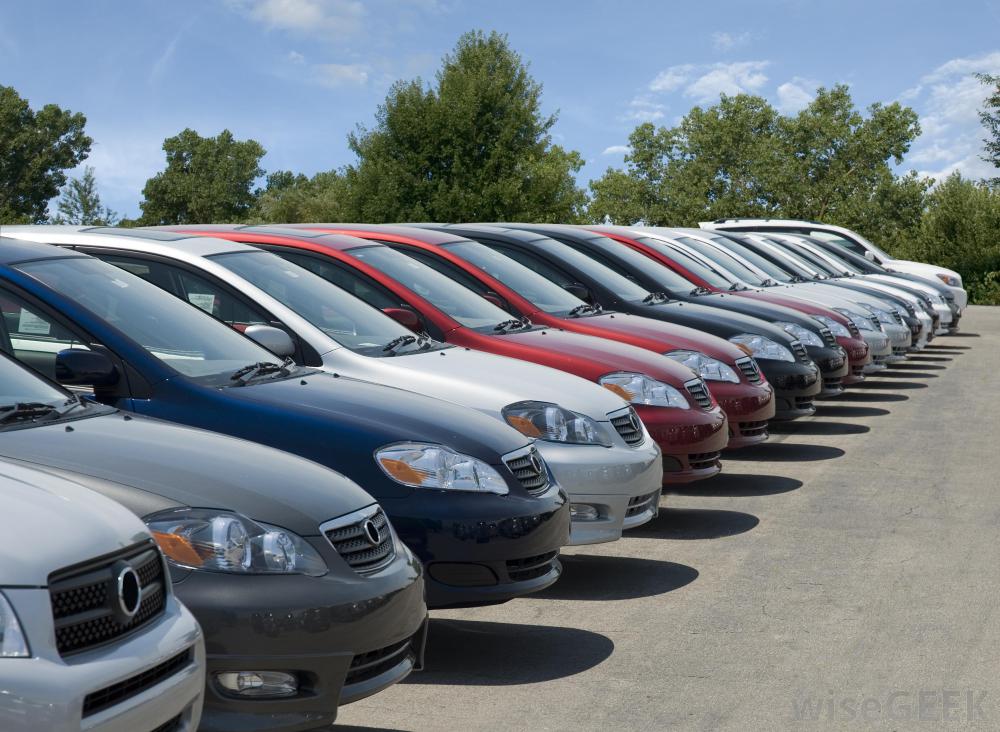Understanding How Vehicle Dealers Operate: A Guide to Their Services and Advantages
Understanding vehicle dealers is important for anybody thinking about a lorry acquisition. These establishments provide more than just vehicles; they provide financing alternatives, trade-in possibilities, and after-sales solutions. Each facet contributes in the general purchasing experience. Many consumers continue to be uninformed of how these processes function. This understanding can substantially impact their decisions and complete satisfaction (car dealer marketing). What are the crucial aspects that consumers should grasp to browse this landscape successfully?
Summary of Vehicle Dealer Workflow
Car car dealerships act as crucial centers in the automobile sector, helping with the sale and solution of automobiles to consumers. They operate by keeping a diverse supply of vehicles, vehicles, and suvs, which are sourced from suppliers or with trade-ins. Sales teams are educated to aid clients in making educated decisions, leading them through the investing in process from option to funding.
In enhancement to sales, dealerships usually use repair and maintenance services, using experienced service technicians to attend to lorry issues. This duality improves client commitment, as owners return for both purchases and servicing needs. Furthermore, dealerships frequently offer warranties and financing options, making it easier for consumers to get lorries.
Effective advertising and marketing approaches, consisting of promos and area engagement, assistance dealers attract prospective buyers. Ultimately, their complex procedures contribute significantly to the overall success and sustainability of the vehicle market.
Sorts of Dealers: New vs. Used
Car dealerships can be classified mainly into 2 types: brand-new and utilized. New cars and truck dealerships usually provide the current designs from numerous producers, giving consumers with the most current technology, safety and security functions, and warranty choices. These dealerships usually highlight promos and motivations to draw in buyers, making it appealing for those seeking a new car.
In comparison, made use of vehicle dealers concentrate on previously owned vehicles, which can vary from older versions to nearly new cars and trucks. These dealerships may use a larger range of brand names and price factors, providing to a broader audience with various budgets. While used cars and trucks may not include the most up to date features, they typically supply substantial savings compared to new designs.
Ultimately, the selection between brand-new and pre-owned car dealerships depends upon private preferences, budget plan restrictions, and the details needs of the customer, making each kind of car dealership valuable in its very own right.

Funding Options Available at Dealerships
When exploring financing choices at vehicle dealers, potential purchasers experience numerous finance kinds created to match different monetary circumstances. car dealer marketing. In addition, the decision between leasing and getting a vehicle can substantially impact total prices and ownership experience. Recognizing these alternatives is necessary for making educated choices in the car-buying procedure
Funding Types Discussed
Various funding alternatives are available at dealers, accommodating a range of client demands and choices. One common option is the conventional auto financing, which generally includes a set rates of interest and regular monthly repayments over a defined term. Another alternative is the subprime finance, designed for purchasers with lower credit rating, frequently featuring higher rates of interest. Some car dealerships additionally supply marketing funding, such as 0% APR for a minimal time, targeting professional buyers to motivate sales. Additionally, customers may check out safe financings, which make use of the vehicle as collateral, potentially causing reduced prices. Comprehending these finance kinds permits clients to select the most effective financing option for their monetary situation and car purchase, ensuring an extra enlightened choice.
Lease vs. Purchase
Picking between leasing and buying a vehicle can greatly influence a customer's monetary situation and driving experience. Leasing generally requires reduced regular monthly payments and permits chauffeurs to enjoy a brand-new automobile every couple of years. It usually comes with gas mileage restrictions and no possession equity at the end of the term. On the other hand, getting a car entails higher month-to-month payments yet cause complete ownership once the lending is repaid. This option provides the flexibility to drive without restrictions and the capacity for resale value in the future. Customers ought to evaluate their economic goals, driving behaviors, and long-term plans to establish which choice finest aligns with their demands, weighing the benefits and downsides of each financing approach offered at car dealerships.

Understanding Trade-Ins and Their Value
The trade-in process is a crucial aspect of acquiring a brand-new automobile, typically influencing the overall cost. Recognizing just how dealers identify the value of a trade-in can empower customers to make educated decisions. Additionally, identifying the advantages of trade-ins may provide customers with substantial monetary advantages throughout their car-buying journey.
Trade-In Refine Explained
Comprehending the trade-in process is essential for any person seeking to upgrade their lorry. This procedure generally starts with the automobile owner event required documents, such as the title and maintenance documents. Next, the owner sees a dealer where the vehicle undertakes an assessment. The dealership reviews the cars and truck's market, problem, and gas mileage demand, which influences the trade-in offer. Once the deal exists, the proprietor can either accept or discuss the terms. If approved, the trade-in value is often used in the direction of the acquisition of a brand-new automobile, lowering the general price. The trade-in process enhances the change from an old vehicle to a new one, making it a practical alternative for many purchasers.
Establishing Car Value
Precise evaluation of a vehicle is an essential consider the trade-in process, as it directly impacts the monetary result for the vendor. To establish a vehicle's value, dealerships think about different factors, consisting of the automobile's make, model, year, condition, market, and gas mileage demand. Vendors can utilize on-line appraisal devices, such as Kelley Directory or Edmunds, to obtain an initial quote. Car dealerships may adjust this worth based on their own evaluations and present stock demands. Additionally, a professional inspection might disclose concealed problems that might affect the automobile's worth. Recognizing these elements helps vendors approach the trade-in process better, ensuring they get a reasonable offer reflective of their automobile's real market value.
Advantages of Trade-Ins
While numerous vehicle owners may forget the benefits of trade-ins, they offer substantial benefits that can improve the general getting experience. Mostly, trade-ins streamline the acquiring procedure by removing the need to sell a vehicle independently. This conserves time and effort, permitting proprietors to concentrate on their brand-new acquisition. In addition, trade-ins offer instant financial alleviation; the worth of the old car can be applied straight toward the down settlement of a new one, decreasing the total finance quantity. Additionally, dealers typically provide competitive trade-in worths, which can be valuable contrasted to more info here personal sales. Lastly, trading in a car can assure a seamless transition, as car dealerships take care of all documents and logistics linked with the transaction, making it a convenient option for many purchasers.
Warranties and Service Plans Explained
What elements should consumers think about when examining warranties and service plans at vehicle dealers? Initially, consumers need to assess the protection given, including what elements are included and the duration of the warranty. Understanding the distinction between maker and car dealership guarantees is also vital, as they might provide differing levels of protection - car dealer marketing. Additionally, customers should check out any he said type of restrictions or exclusions, such as particular maintenance requirements that might void the warranty
An additional crucial aspect is the transferability of the guarantee, which can boost the car's resale worth. Consumers should also think about the car dealership's reputation for recognizing warranties and the ease of making claims. The price of solution plans ought to be weighed versus possible repair service costs, making sure that the plan aligns with one's spending plan and driving practices. By taking into consideration these factors, customers can make educated decisions that enhance their lorry possession experience.

Tips for Negotiating the Finest Offer
Comprehending warranties and service strategies can substantially affect a consumer's overall experience at a car dealer, specifically when it pertains to working out the most effective bargain. To accomplish beneficial terms, consumers must conduct comprehensive research on the lorry's market price, ensuring they are educated regarding fair rates. Establishing a budget ahead of time can help establish clear limitations throughout settlements.
Additionally, being prepared to stroll away can empower customers, signaling to the dealer that they are not desperate. Taking part in discussions regarding funding choices might also produce more helpful terms. It is advisable for consumers to inquire about incentives or refunds that might not be advertised, as these can substantially impact the final rate. Preserving a considerate disposition throughout the process can cultivate a good reputation, possibly leading to better offers. By utilizing these approaches, consumers can improve their possibilities of safeguarding a beneficial offer at the dealer.
Regularly Asked Inquiries
Just How Do Dealerships Identify the Market Price of an Automobile?
Car dealerships establish the marketing price of a vehicle by the original source analyzing market demand, car condition, producer prices, affordable analysis, and revenue margins. They likewise consider local market trends and any incentives readily available to consumers.
What Is the Refine for Returning an Auto Acquired From a Car dealership?
The process for returning an automobile acquired from a dealer typically involves informing the supplier, completing required paperwork, and adhering to any kind of return plans or timeframes established by the dealership, frequently influenced by state regulations.
Exist Any Type Of Covert Costs When Purchasing From a Dealership?
Yes, there can be concealed costs when purchasing from a car dealership. These may include paperwork fees, supplier prep work charges, or destination costs, which can considerably increase the total expense of the vehicle beyond the promoted cost.
How Do Dealerships Handle Recalls on Autos Sold?
Dealers typically notify consumers regarding recalls and might use to repair the vehicle at no expense. They maintain records of sold vehicles, making sure compliance with maker guidelines and focusing on customer security and satisfaction throughout recall procedures.
Can I Negotiate the Cost of Attachments or Services?
Yes, the price of services or add-ons can commonly be negotiated at a dealership. Clients are urged to discuss pricing freely, as dealers might agree to readjust prices to shut a sale.
Understanding cars and truck dealers is essential for anybody taking into consideration a lorry acquisition. Car dealerships serve as vital centers in the vehicle sector, facilitating the sale and service of cars to consumers. In contrast, used vehicle dealerships focus on pre-owned vehicles, which can range from older versions to virtually brand-new autos. To establish a lorry's worth, dealers take into consideration different aspects, including the car's make, model, year, gas mileage, problem, and market demand. Dealerships determine the marketing cost of a car by examining market demand, vehicle problem, producer pricing, affordable analysis, and profit margins.